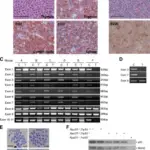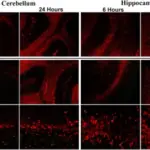Turcot syndrome is a rare inherited disorder characterized by the association of benign growths (adenomatous polyps) in the mucous lining of the gastrointestinal tract with tumors of the central nervous system.
What is the Pathology of Turcot Syndrome?
Etiology: The cause of Turcot syndrome is unknown.
Genes involved: APC mutation is considered important.
Pathogenesis: Turcot syndrome is inherited as an autosomal recessive trait and the other as an autosomal dominant trait.
Histology: The histology associated with Turcot syndrome shows high grade neoplasms, with significant mass effect. Palisaded necrosis is also often observed.
How does Turcot Syndrome Present?
Patients with Turcot syndrome typically have a family history of multiple malignancies.
The symptoms, features, and clinical findings associated with Turcot syndrome include multiple benign growths (polyps) in the colon, rectal bleeding, gliomas, and lipomas.
How is Turcot Syndrome Diagnosed?
Turcot syndrome is diagnosed based upon a detailed patient history, a thorough clinical evaluation, and a variety of specialized tests. Genetic testing for APC mutations may be indicated.
How is Turcot Syndrome Treated?
The treatment of Turcot syndrome is directed toward the specific symptoms that are apparent in each individual. Surgical removal of the tumors may be indicated.
What is the Prognosis of Turcot Syndrome?
The prognosis of Turcot syndrome is fair with a median life expectancy of 45 years.



